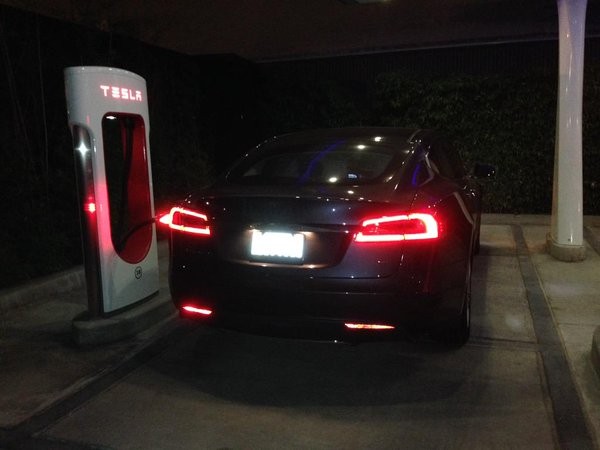Tesla was able to launch its new Tesla Model S without redesigning the battery pack or assembly line by adding a few new lines of code. The new Model S 60 and all-wheel drive 60D include the same 75 kilowatt-hour (kWh) battery in the Model S 75. Tesla engineers just tweaked the electric vehicle's (EV) software to reduce capacity by 20 percent to offer a lower-priced Tesla car that customers can upgrade later.
Tesla is building powerful e-cars then limiting their potential. After selling the EVs at a discount they are charging $9,000 for a software update as a type of in-app purchase, according to Wired.
Tesla already uses this approach for its Autopilot feature. Customers pay $2,500 to activate software and turn Teslas into semi-autonomous cars.
In addition, Tesla owners who did not get early access to the company's network of Supercharger stations can still add the service via new software. The cost is $2,500.
Meanwhile, in the early history of the Model S, Tesla installed handicapped 60-kWh battery packs due to few people ordering the 40-kWh battery. The company gave its sedan owners the option to spend $10,000 to maximize the power source.
Tesla claims it is giving its customers more choices and flexibility. For example, they can add Autopilot or more range without buying a brand new car.
Erik Gordon is a technology communication student at the University of Michigan. He explains that for years electronic companies have launched products that are basically the same, but can be sold at different price points. It is called "crippling."
However, the difference is that Tesla can offer crippled features by changing software instead of components. Therefore, the cost is quite low.
It is similar to the app industry offering free versions of games such as Angry Birds and Candy Crush. Developers hope gamers will upgrade to the full version.
In related news, Tesla changed a section of its customer repair agreements after a United States regulator argued there was a problem.
Tesla CEO Elon Musk tweeted that 37 of 40 complaints about Tesla car suspension filed with the US National Highway Traffic Safety Administration (NHTSA) were fake, according to CNBC. That is because they included a fake location or vehicle identification number (VIN).
Here's Tesla's Gigafactory 1:



























